The hidden architect of the Supreme Court
All six conservative Supreme Court justices were seated with major help from Leonard Leo of the Federalist Society
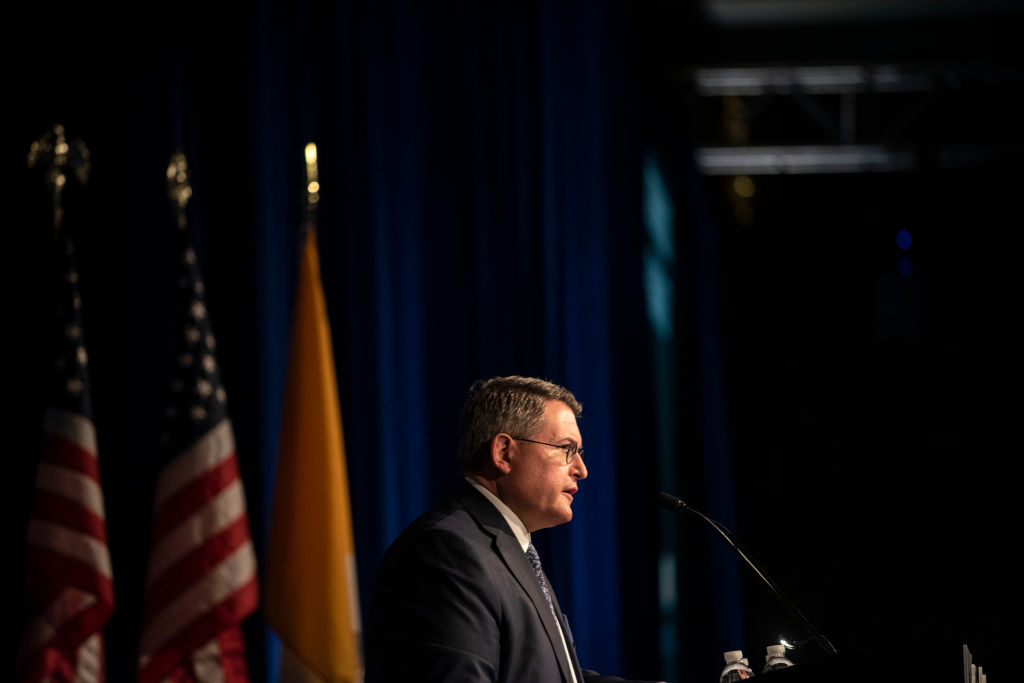
A free daily email with the biggest news stories of the day – and the best features from TheWeek.com
You are now subscribed
Your newsletter sign-up was successful
All six conservative Supreme Court justices were seated with major help from Leonard Leo of the Federalist Society. Here's everything you need to know:
Who is Leonard Leo?
He is the right-wing power broker who, more than any other single person, paved the way for recent major Supreme Court decisions overturning abortion rights, environmental protections and affirmative action. Over a period of three decades, the senior Federalist Society executive played a pivotal role in building the court's current six-justice conservative supermajority. He marshaled allies to spend $15 million on public relations campaigns supporting the confirmation of John Roberts and Samuel Alito. In 2016, presidential candidate Donald Trump vowed to consider only Federalist Society members for court appointments; Trump's appointees, Neil Gorsuch, Brett Kavanaugh, and Amy Coney Barrett, all appeared on shortlists of candidates Leo handed him. A consummate networker, Leo introduced longtime friend Clarence Thomas to right-wing billionaire Harlan Crow and arranged for Alito to join another conservative billionaire, Paul Singer, on Singer's private jet for a 2008 luxury fishing trip to Alaska. A master fundraiser of "dark" money, Leo has several political organizations in his orbit that have spent more than $504 million on political and judicial causes since 2015; a $1.6 billion gift to a group run by Leo from 91-year-old electronics magnate Barre Seid in 2020 will enable Leo to expand his influence even further. At a 2018 Federalist Society event, Thomas described Leo as "the No. 3 most powerful person in the world."
What motivates Leo?
He has strong religious and political beliefs shaped by his arch-conservative Catholicism. Leo, now 57, attends Mass daily and belongs to the Knights of Malta, an international Catholic organization founded in the 11th century whose 13,500 select members take secret vows. Adamantly opposed to same-sex marriage, LGBTQ+ rights, abortion, and contraception, Leo claims America has grown "more hateful and intolerant of Catholicism," and that his foes are "not just uninformed or unchurched" but also "often deeply wounded people whom the devil can easily take advantage of." Leo has responded to critics who accuse him of seeking a theocracy by insisting he simply wants "to defend the Constitution as it's written." Friends say his anti-abortion views were solidified by his experience with his daughter, Margaret, who died at 14 from complications of spina bifida. A father of seven, Leo has described abortion as "an act of force" and "a threat to human life." Tom Carter, who was the communications director at one of Leo's organizations for three years, has said, "He believes he's on a mission from God."
The Week
Escape your echo chamber. Get the facts behind the news, plus analysis from multiple perspectives.

Sign up for The Week's Free Newsletters
From our morning news briefing to a weekly Good News Newsletter, get the best of The Week delivered directly to your inbox.
From our morning news briefing to a weekly Good News Newsletter, get the best of The Week delivered directly to your inbox.
How has he pursued his mission?
Most overtly through the Federalist Society, for which he is now co-chairman of the board. Founded in 1982 by conservative law students, on Leo's watch it has become, as Senate Minority Leader Mitch McConnell put it, "a farm team of potential judges." With some 70,000 members and $20 million in yearly revenue, the tax-exempt organization carefully selects ambitious young law students with conservative views, steeps them in "originalist" and "textualist" judicial philosophy, and shepherds them from law school to the bench. All of the Supreme Court nominees Leo supported were approved by the Federalist Society, and so were the 200-plus federal judges he guided to confirmation under Trump. Historically, the Federalist Society has been funded by corporations and private donors, but it also receives millions each year from Leo's other organizations.
What are they?
Leo's byzantine, financially interconnected network of 150 groups includes for-profit firms and nonprofits. Because the Supreme Court's 2010 Citizens United decision exempts "social welfare organizations" from disclosing their donors, these groups often attract big checks from wealthy activists — "dark money." One of them, the Judicial Crisis Network, spent $17 million on campaigns to block President Obama's nomination of Merrick Garland to succeed the late Justice Antonin Scalia and then to push through Gorsuch's confirmation. Leo's nonprofits have also funneled more than $43 million to his for-profit political consulting firm CRC Advisors, which serves conservative political figures and groups. Since 2016, these organizations appear to have ballooned Leo's personal wealth. In March, Politico revealed that Leo quickly went from living in a suburban Washington, D.C., home with a 30-year mortgage to buying two mansions on a Maine resort island worth $5 million, buying four new cars, and hiring a personal wine buyer.
What is Leo doing now?
He's plowing into the culture wars. With Seid's bequest nearly quadrupling his available funds, organizations in his network are identifying and publicly attacking corporations that prioritize fighting climate change. In a recent video, Leo vowed to fight "wokism," "one-sided journalism," and "entertainment that's really corrupting our youth" by creating a pipeline to funnel conservative talent into the country's economic and cultural institutions. "If this can work for law," he said, "why can't it work for lots of other areas of American culture and American life where things are really messed up right now?"
Friends of the family
No justice has remained closer to Leo than Clarence Thomas. Two years after graduating from Cornell Law School, Leo gathered evidence supporting Thomas when Anita Hill's accusations of sexual harassment threatened to derail his 1991 confirmation. Thomas is the godfather of one of Leo's children; the justice and his wife, Ginni, have stayed at Leo's vacation home. Ginni, a political activist, has called Leo a "hero" and has benefited from his largesse. In 2012, Leo directed then-pollster Kellyanne Conway to bill the Judicial Education Project, a nonprofit he advised, for tens of thousands of dollars to pay Ginni. After the organization filed a brief in a landmark case overturning part of the Voting Rights Act, he asked Conway to "give" another $25,000 to the wife of Justice Thomas, who had voted with the majority. "No mention of Ginni, of course," Leo wrote. In response to recent revelations that he has helped the Thomases and Alito enjoy the largesse of billionaire conservative donors and activists, Leo has been defiant. Journalists and politicians who are questioning the justices' ethics, he said, want to weaken the court and promote "their disordered and highly unpopular cultural preferences."
A free daily email with the biggest news stories of the day – and the best features from TheWeek.com
This article was first published in the latest issue of The Week magazine. If you want to read more like it, you can try six risk-free issues of the magazine here.
-
 Corruption: The spy sheikh and the president
Corruption: The spy sheikh and the presidentFeature Trump is at the center of another scandal
-
 Putin’s shadow war
Putin’s shadow warFeature The Kremlin is waging a campaign of sabotage and subversion against Ukraine’s allies in the West
-
 Media: Why did Bezos gut ‘The Washington Post’?
Media: Why did Bezos gut ‘The Washington Post’?Feature Possibilities include to curry favor with Trump or to try to end financial losses
-
 Supreme Court upholds California gerrymander
Supreme Court upholds California gerrymanderSpeed Read The emergency docket order had no dissents from the court
-
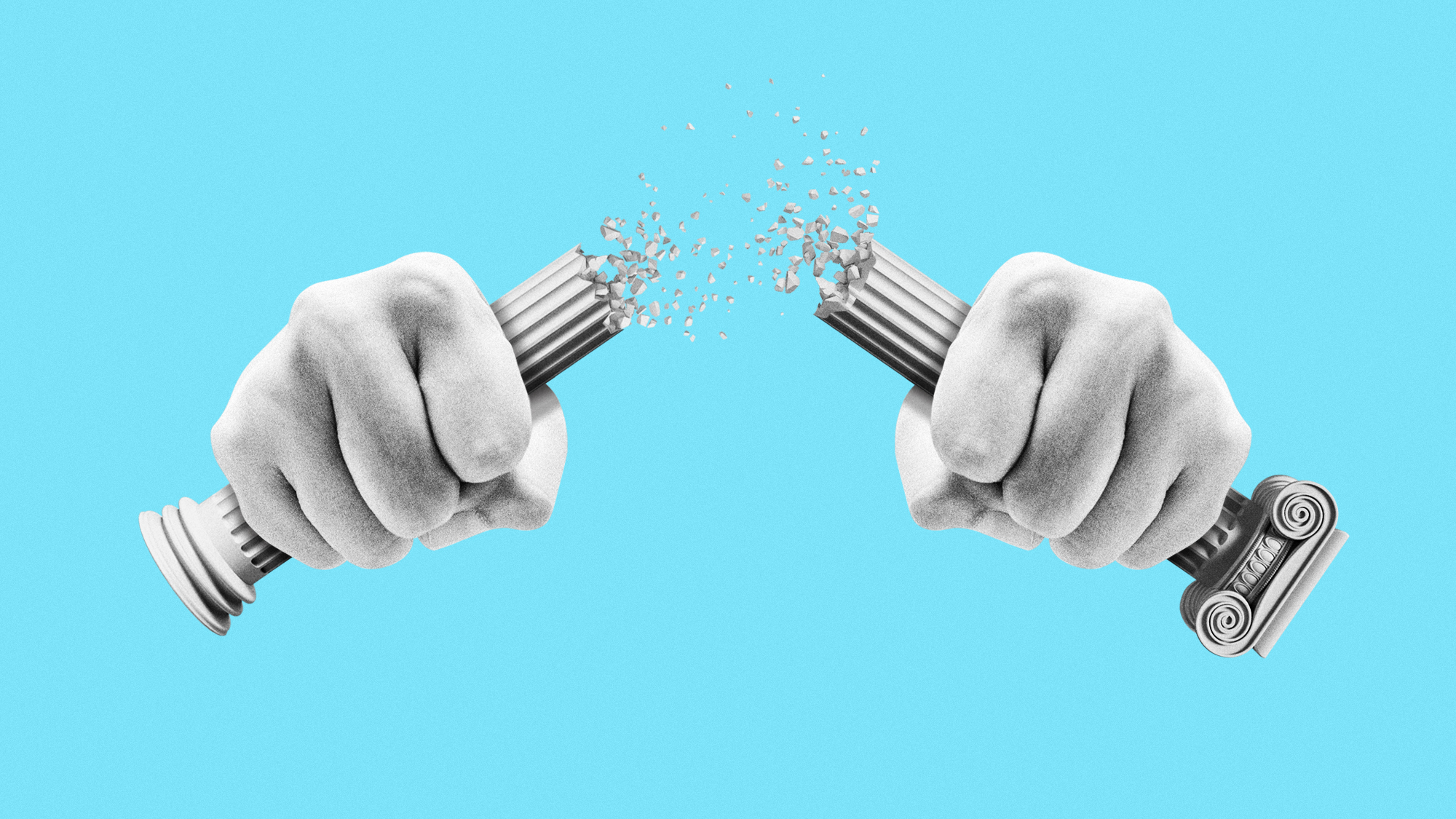 How robust is the rule of law in the US?
How robust is the rule of law in the US?TODAY’S BIG QUESTION John Roberts says the Constitution is ‘unshaken,’ but tensions loom at the Supreme Court
-
 The ‘Kavanaugh stop’
The ‘Kavanaugh stop’Feature Activists say a Supreme Court ruling has given federal agents a green light to racially profile Latinos
-
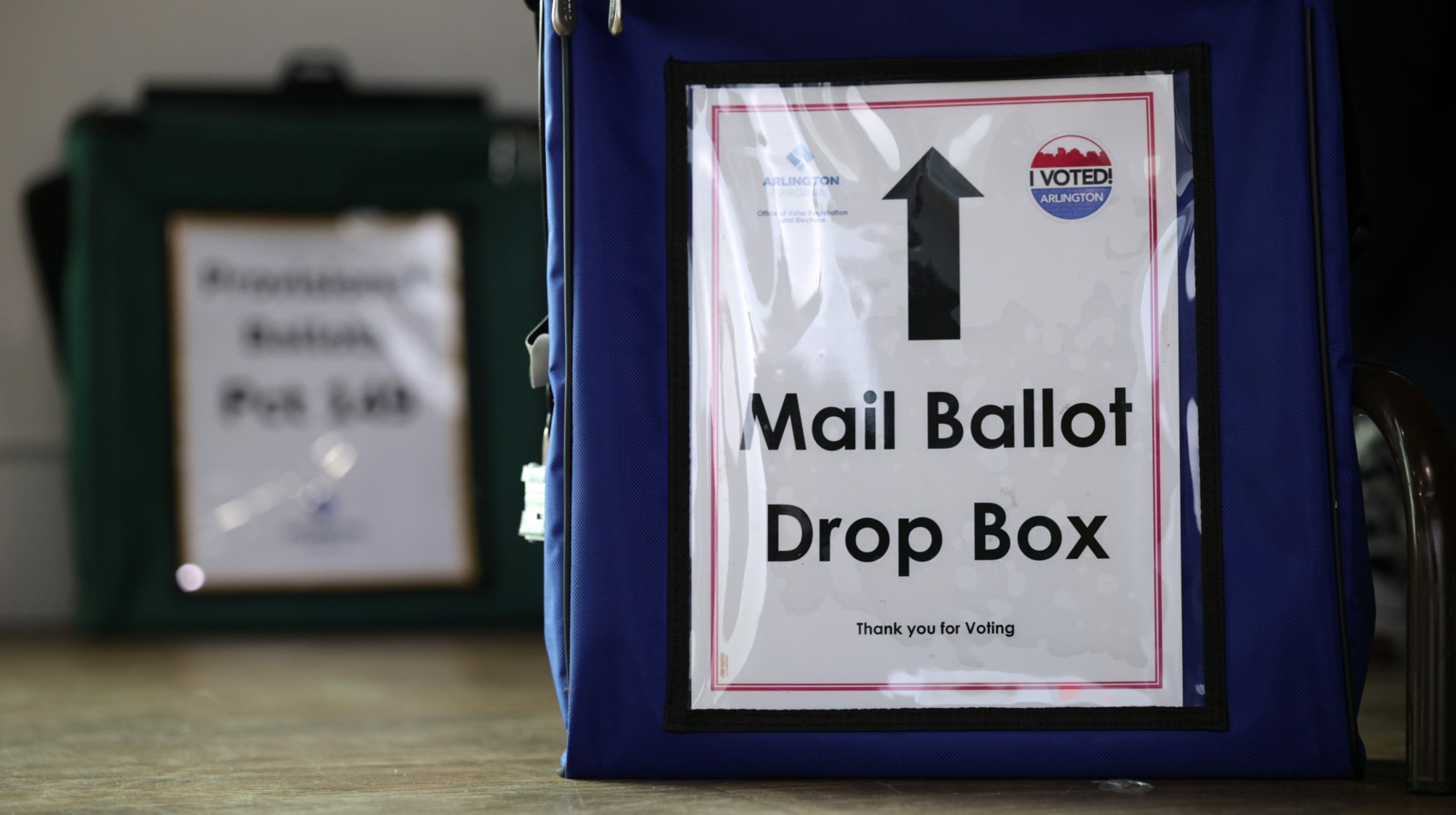 Supreme Court to decide on mail-in ballot limits
Supreme Court to decide on mail-in ballot limitsSpeed Read The court will determine whether states can count mail-in ballots received after Election Day
-
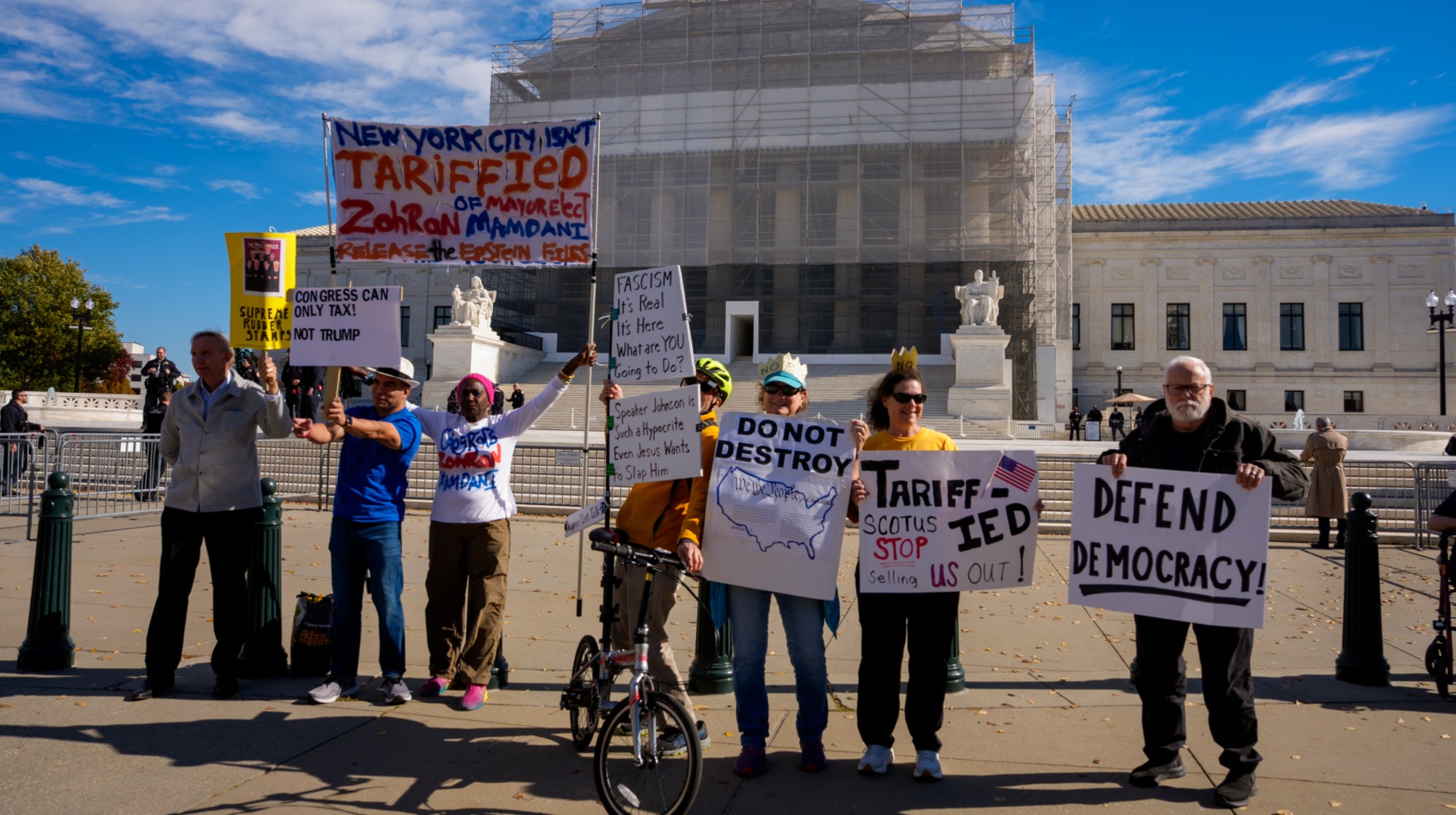 Trump tariffs face stiff scrutiny at Supreme Court
Trump tariffs face stiff scrutiny at Supreme CourtSpeed Read Even some of the Court’s conservative justices appeared skeptical
-
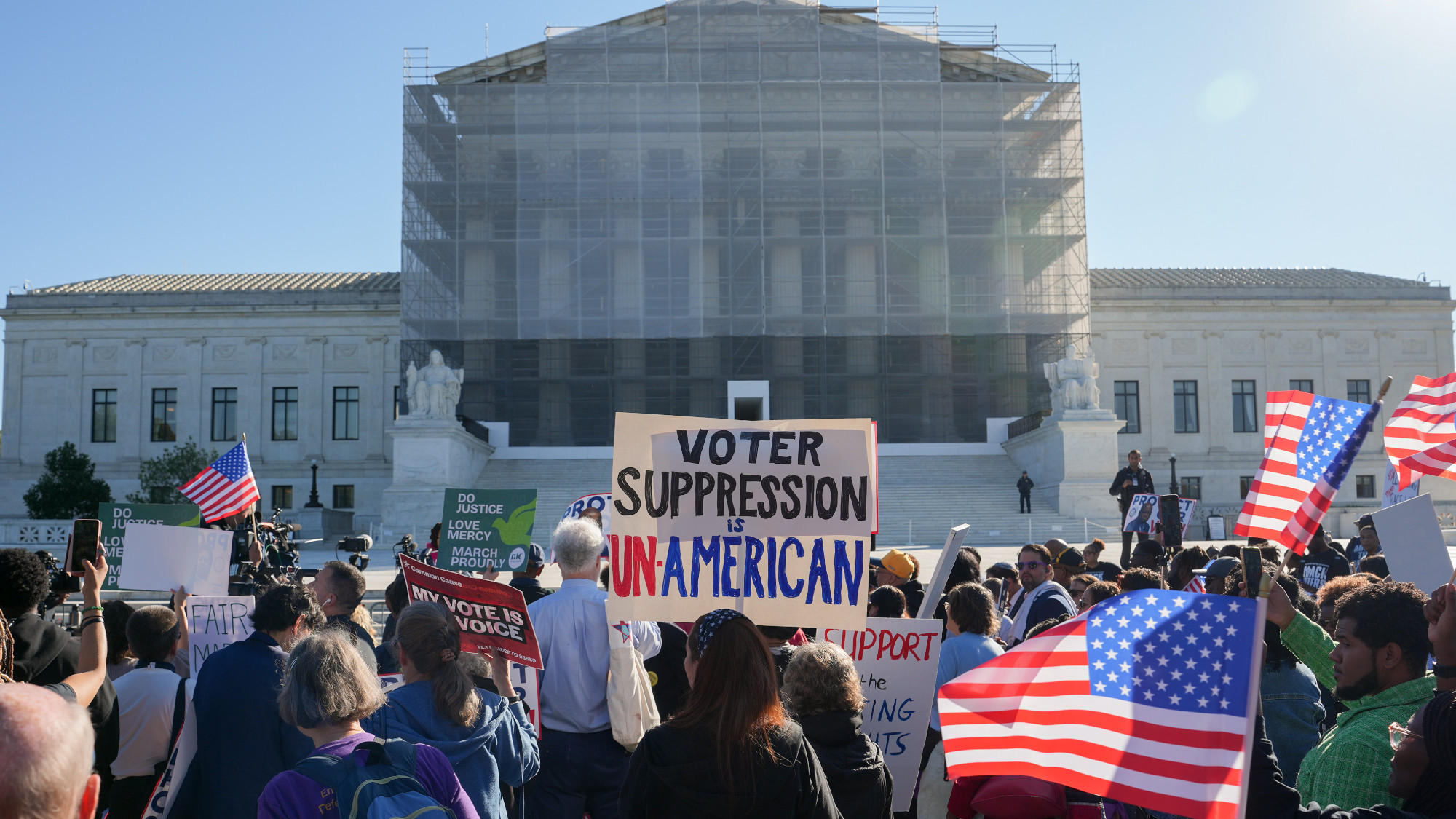 Voting Rights Act: SCOTUS’s pivotal decision
Voting Rights Act: SCOTUS’s pivotal decisionFeature A Supreme Court ruling against the Voting Rights Act could allow Republicans to redraw districts and solidify control of the House
-
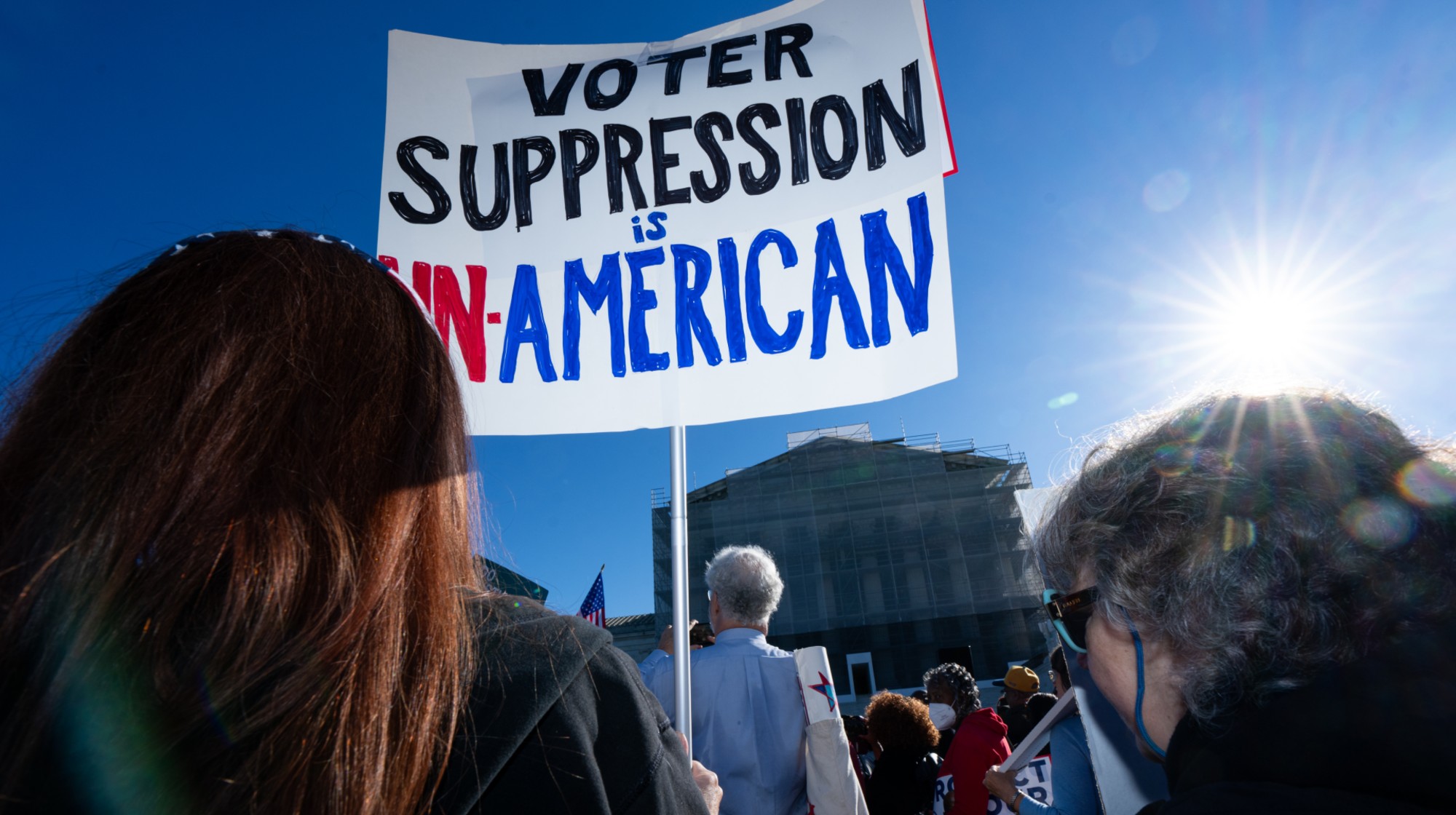 Supreme Court points to gutting Voting Rights Act
Supreme Court points to gutting Voting Rights Actspeed read States would no longer be required to consider race when drawing congressional maps
-
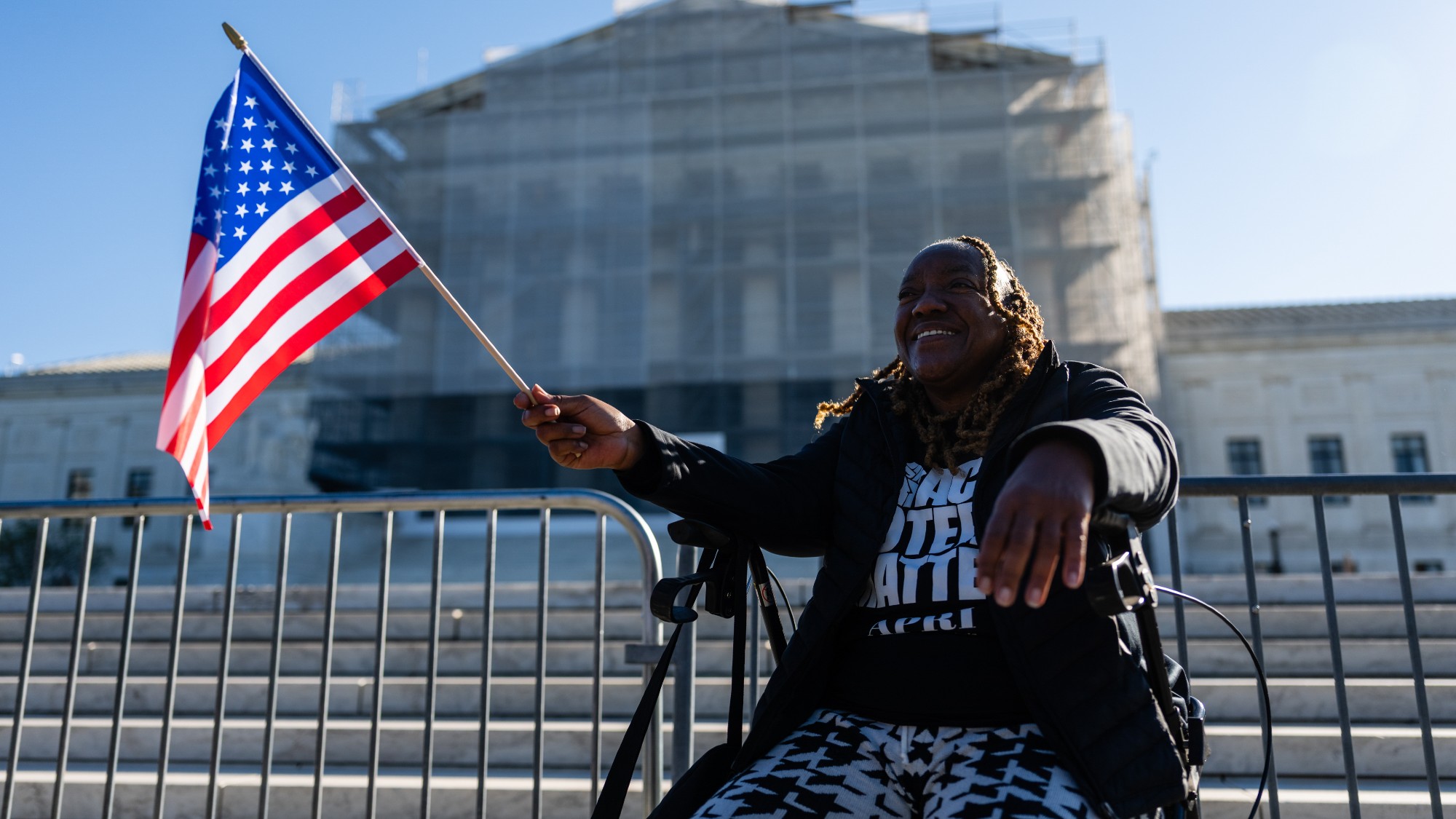 ‘An exercise of the Republicans justifying their racist positions’
‘An exercise of the Republicans justifying their racist positions’instant opinion Opinion, comment and editorials of the day